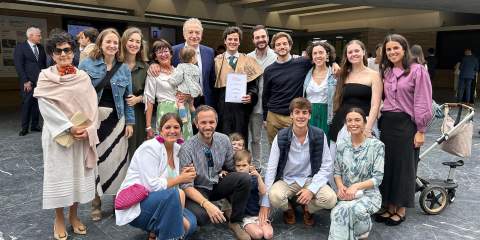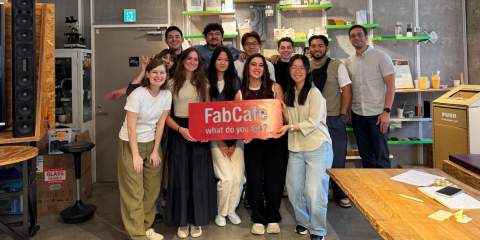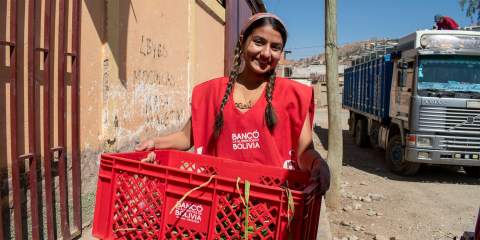Brendan Frizzell, Martel '24, Buenos Aires, Argentina
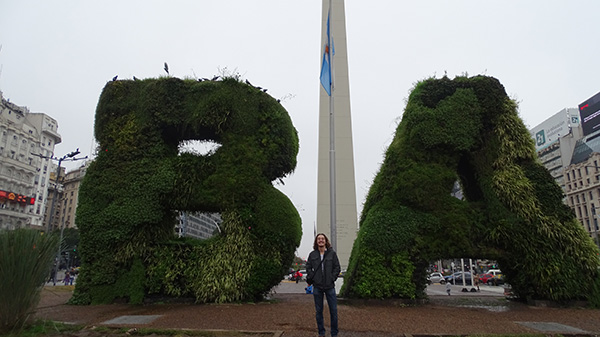
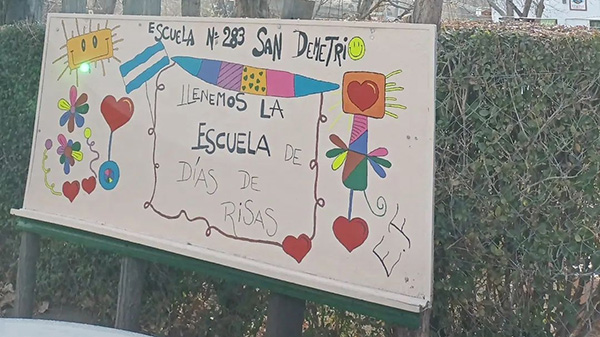
This summer, I traveled to Buenos Aires, Argentina to work with a non-governmental organization (NGO) called Fundación Ruta 40 (FR40). Their work primarily aims to reduce the inequality between urban and rural education by supporting rural students. Argentina's population is 91% urban, so the small percentage of rural population — and the even smaller percentage of rural students — often are overlooked by national policies. Therefore, the work of this NGO is critical to ensure students in rural education not only have the modern equipment and adequate supplies to succeed, but are also aware of their future opportunities education could and will create for them in the future.
As an intern for FR40, I helped with a wide variety of projects. While I worked in the office or from home, I primarily worked on translating different parts of the website, an informational book they create and update every year, and popular projects they host at schools for students, teachers, families, and faculty. I also developed a map of all the rural schools they support, added all of the projects they have on their website and helped organize physical supply shipments sent to schools. My favorite part of my work though, was traveling to Neuquén, a rural region of Argentina, and visiting a school of elementary students for a workshop to encourage reading and writing. The kids were really curious about the United States, and they even asked me to play soccer with them during recess. I found this experience very enriching, and I'm really grateful the Center for Civic Leadership has opportunities like this for students at Rice!
Mehek Jain, Lovett '24, Nairobi, Kenya
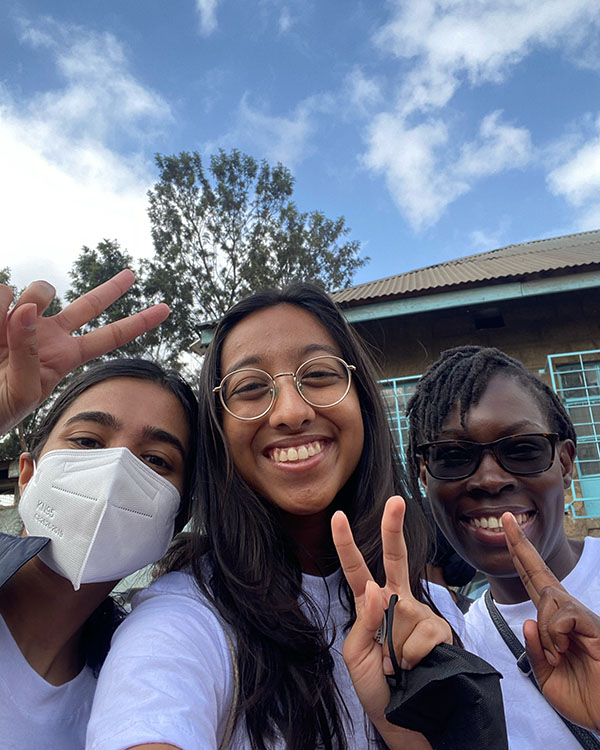
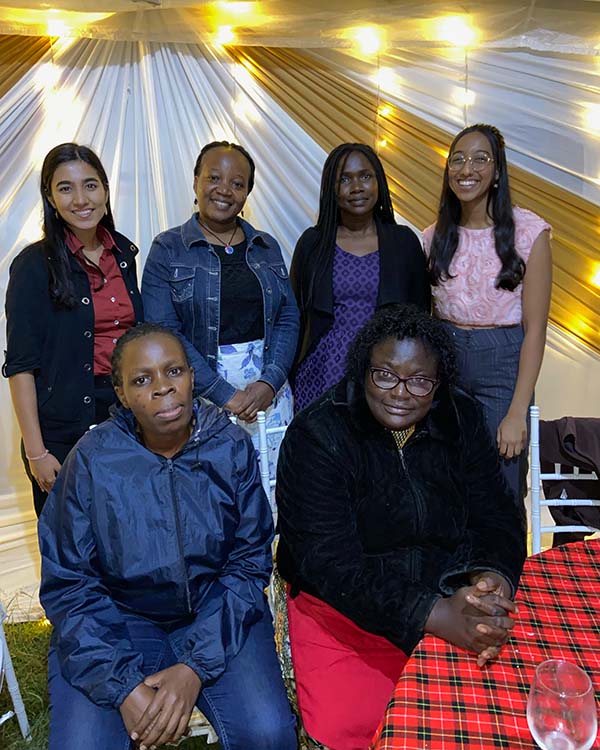
“Lemon and ginger! The cure for COVID!” Collins cried out sarcastically. In the breaths between his laughter, he recounted the comedic tragedy of the pandemic. “And why did the tissue paper sell out? I’m still wondering,” he chuckled to himself as he walked away. Lifting my eyes up from my book, I too chuckled at him, realizing that his characteristic humor had become a staple in my life. The thought of leaving his quick quips, or Dorothy’s homemade mandazis, or the long walks with Sonia, filled my heart with both sorrow and gratitude. I was nearing the end of my 8 amazing weeks in Nairobi, Kenya, where I worked with The Pangea Network, a non-profit organization dedicated to empowering women and youth. I enjoyed this incredible experience thanks to the Loewenstern Fellowship in International Critical Service and Civic Research, a program in Rice’s Center for Civic Leadership (CCL). The fellowship provides students with the once-in-a-lifetime opportunity to conduct critical service or civic research work, often partnering with a non-profit organization, in a country abroad for 8-12 weeks during the summer; it includes a reflective International Service course prior to the trip and generous funding to account for travel expenses, accommodation, food and more.
While in Nairobi, I lived with Dorothy, the Kenya Country Director of Pangea, and her effervescent family, alongside frequent visitors like Collins, a field officer for Pangea. From the very first day, they welcomed me with open arms, treating me as part of both the work team and the family. In the office, my colleagues entrusted us with important work; we oversaw data monitoring and analysis for the TUDAI program, a sexual and reproductive health education initiative reaching 375 adolescent girls across rural villages in Kenya aimed at reducing rising teen pregnancy and school dropout rates. Specifically, we used survey and community data to write comprehensive reports on successes, challenges, and future recommendations, drafted funding proposals, and constructed questionnaires for additional information from key stakeholders. I found myself frequently applying skills learned in my Rice classes, such as implementing the data analysis tools learned in my political science classes to tangible data or using historical research skills to contextualize our work in a broader context. Beyond academic and career growth, immersing myself in an entirely new culture and environment taught me about the ups and downs of having adventures on your own. As an international student with a very global upbringing, I did not anticipate the extent of self-growth I experienced. Yet, in just eight weeks, I grappled with my future ambitions and what happiness means to me, learned to enjoy and even crave my own company, capitalized on the rare amount of free time to read and explore, and confronted my otherness as a foreigner. While my all-too brief time in Kenya is now over, this experience reminded me that my journey in life has just begun.
Arinze Appio-Riley, Martel '24, Medellín, Columbia
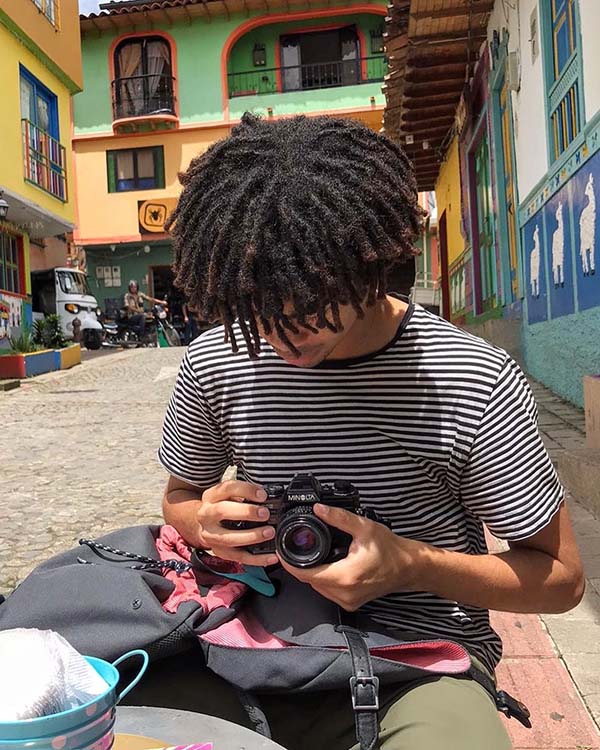
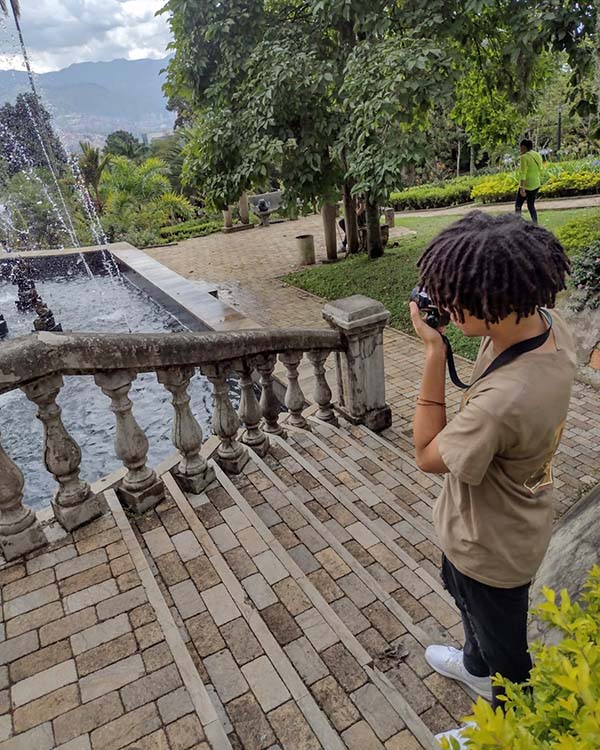
Hi, my name is Arinze and I’m a Loewnestern Fellow working with Pygmalion Tech, a nonprofit located in Medellín, Colombia! The goal of the organization is to better prepare children, teens and adults to enter into the emerging workforce of both front and back-end development, dubbed Industry 4.0. During this fellowship, I have had the opportunity to help the internal development team to create front-end designs and to hardcode components for said designs. While this has helped to create a new portion of the organization’s website, I am planning on additionally helping to aid in reviewing Pygmalion’s current curriculum to better prepare students for STEM vernacular in both English and Spanish. I chose this project because of its strong founding mission to better educational and occupational outcomes for underserved residents living in a rapidly progressing city. This closely aligned with my initial reason for pursuing this fellowship: to learn how equitable actions are successfully being executed in an environment different from the US. During this experience, I have developed fairly strong web development skills, improved my Spanish, and, most importantly, realized that I should allow myself more leeway in terms of my career plan because I’ve realized there are a plethora of pathways and outcomes that I would be fulfilled to pursue!
Puneetha Goli, McMurtry '24, Wakiso District, Uganda
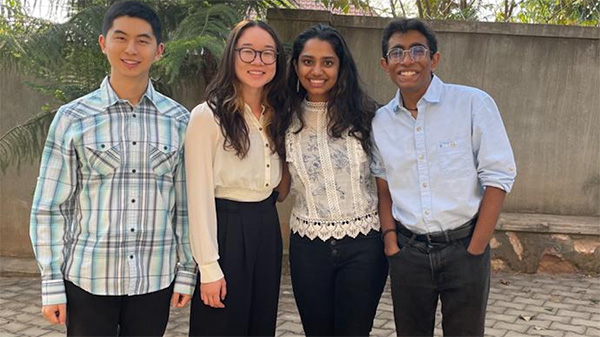
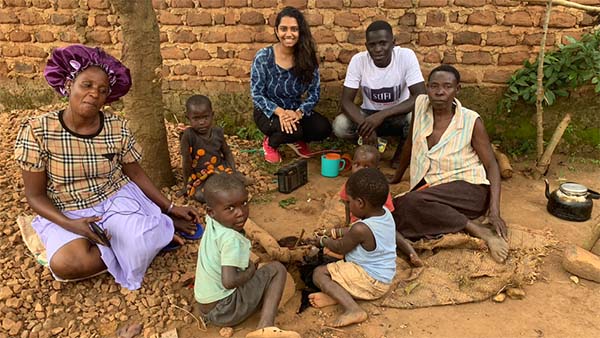
As a pre-med and aspiring physician, I’ve never had trouble finding opportunities to explore my passions and interests at Rice. From taking classes like Professor Brielle Bryan’s SOCI 301 Social Inequalities to conducting research as a Child Health Policy Intern at the Baker Institute for Public Policy, I’ve been fortunate to learn about the inequalities in our society, both on a city-wide and national level, and how they manifest themselves into healthcare. While these experiences in and of themselves were rewarding and taught me to question the things I’ve taken for granted, my curiosity to broaden my understanding of health equity on a global scale led me to apply and get selected as a Loewenstern Fellow through Rice University’s Center for Civic Leadership. Through the program, Fellows conduct international service or civic research for a non-profit organization for 8-12 weeks through a fully funded trip.
This past summer, I got matched to work with Kiyita Family Alliance for Development (KIFAD) in Wakiso District, Uganda; while initially started to provide care for families and individuals infected with HIV/AIDS, KIFAD’s mission has expanded to increase access to healthcare and address the social determinants of health for vulnerable children and families in Wakiso District. During my time with KIFAD, I worked along a team of three other Rice Fellows to conduct a rapid assessment of the barriers to accessibility and utilization of healthcare services among vulnerable families in Mende Sub County, Wakiso District, Uganda, to use the findings to advocate and shape future policy. From designing surveys to collecting data through leading community focus group discussions and interviewing households with the help of translators, my team and I were able to compile all of our assessment findings into a final project report. Working with the local community in such a direct manner allowed me to witness first-hand the devastating effects of poverty and illiteracy and how it manifests itself into poor health outcomes. At the conclusion of our internship, we were able to present our findings to local community leaders to advocate for the vulnerable populations in the area and push for more equitable policies and solutions. Our work and final presentation were even featured on a local news channel.
While I initially signed up for the Loewenstern Fellowship to further my understanding of global health and to witness the direct impact of a local non-profit organization, what I got out of this experience was so much more: from learning how to adjust and live independently in a foreign country to experiencing an emphasized determination to pursue a career in health care and work to make health access more equitable, my time in Uganda was an opportunity of a lifetime - and along the way, I fell in love with the culture and people of the ‘Pearl of Africa’ and all that they gave me.
Be sure to visit the website for the Center for Civic Leadership to learn more about all the opportunities they provide for Rice students.
Keep Exploring
Discover how pre-med student Lexi, Baker '28, found her "second family" in Spain, strengthened her clinical skills through Rice in Spain, and returned with a global perspective that will shape her future career in medicine.
Caroline, Will Rice ’28, proves that studying abroad as an engineering student is possible! Learn how Rice’s iSEED program made her Tokyo experience a reality.
What began as a three-month Loewenstern Fellowship quickly became a lifelong commitment to fighting food insecurity. Read how a return trip to Bolivia affirmed the lasting power of global service for Neha, Lovett '26.
Helpful Links
713-348-7423
admission@rice.edu
M-F 8:30 a.m. to 5 p.m. CT
